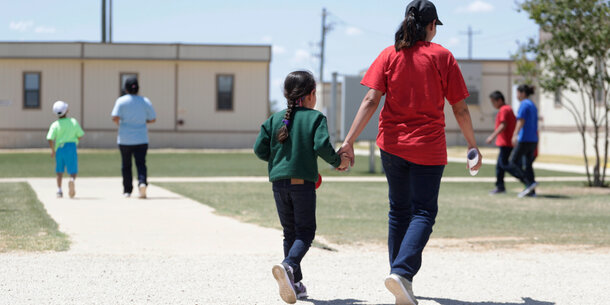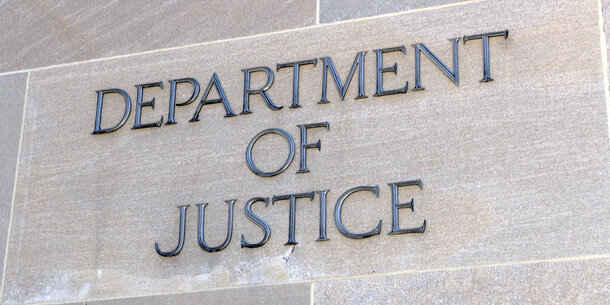Nearly every corner of American society has changed to adapt to Covid-19. Workplaces moved to videoconferencing, stores to curbside pickup, and all levels of government rushed to shore up the social safety net. Despite that, many are still struggling with unemployment and poverty. It’s often hardest for people with a criminal record — especially those who have recently been released from prison — who are all too often an afterthought or seen as social exiles unworthy of help.
Even in the best of times, people with a criminal record face stigma in the job and housing markets and beyond. The pandemic and recession have compounded these disadvantages, placing formerly imprisoned people at even greater risk of poverty and other hardships.
All too often federal and state policies have failed to meet the unique needs of people whose lives have been impacted by the criminal justice system. As Congress finalizes another Covid-19 relief package, lawmakers should ensure that it doesn’t leave out people with a past criminal history, who badly need assistance just as much as the rest of us.
The pandemic has proven especially deadly for prisons and jails, where overcrowding and resource constraints made it nearly impossible to protect incarcerated people and staff from Covid-19. Responding to advocates across the country, correctional officers, sheriffs, and lawmakers released some people from custody to try to reduce the spread of disease. States and cities also freed people who had been charged with low-level offenses — thousands in total. Not enough was done, but these were important steps.
Unfortunately, people released from prisons through special initiatives or otherwise still face many other challenges. The first year of release is intensely difficult for people leaving prison, as they struggle to meet the demands of their new lives. Newly released people face a number of barriers to stable housing, food, jobs, and healthcare. Without these basic essentials recidivism is an unfortunately likely outcome, especially (and paradoxically) for those who are under probation or parole supervision.
Poverty compounds these challenges. A Brennan Center study released last year shows that those who have spent time in prison consequently earn around half of what their non-previously incarcerated peers earn annually. You might think that this effect fades with time. But our research shows that people with a criminal record face a lifetime of diminished earnings, placing them at substantially greater risk of falling into poverty.
These challenges became that much more acute in 2020. Early, pandemic-related releases — while far superior to the alternative of continued detention — left people with little time to effectively coordinate reentry plans and set up other resources, magnifying the already existing challenges of reentry. In many instances, there was not enough time to enroll eligible returning citizens into important programs like Medicaid and SNAP.
Stable housing and a good job are often critical parts of reentry, but also proved difficult amidst the pandemic. Given the higher risk of exposure to Covid-19, families may have also been fearful about accommodating loved ones just released from prison. Further, finding and keeping a job during the largest economic crisis since the Great Depression is especially difficult for people who bear the stigma of a criminal record. According to one researcher, between 30 to 50 percent of people under community supervision — parole or probation — had lost a job since the onset of the coronavirus pandemic. And competition is fierce for those jobs that remain, as newly released people may find themselves competing against newly unemployed people who have more work experience.
At the same time, some of the government’s tools for responding to the economic crisis have little or nothing to offer people returning home from prison. Expanded unemployment insurance was a lifesaver during the pandemic’s first peak, but — except in rare cases — people leaving prison won’t meet eligibility criteria.
Imprisoned people are eligible for the direct cash payments provided by (among other legislation) the Coronavirus Aid, Relief, and Economic Security (CARES) Act. Those who are still in prison but about to be released are also eligible, thanks to a recent court order. But justice-involved people are less likely to have bank accounts, making direct deposit impossible and delaying receipt of these payments.
One way federal recovery programs can better support those in need is by ensuring that justice-involved people are included in any jobs or stimulus programs. Unfortunately, so far, the federal government has only imposed new hardships on those with criminal records.
People who have served time in prison are actually more likely to be entrepreneurs compared to those who have not — perhaps due to the difficulty of being hired by an existing employer. Yet the Small Business Administration, which sets eligibility standards for aid under the CARES Act’s Paycheck Protection Program (PPP), initially disqualified businesses from receiving those funds if any owner with a major stake in the business had been convicted of a felony within the past five years. In the worst economic crisis in nearly a century, people with criminal records were once again left in economic exile.
The American Civil Liberties Union responded by filing lawsuits against the policy, citing the rule’s potential for a disparate impact on people of color. These lawsuits, along with public pressure, led the Trump Administration to ease these filing restrictions, but only a week before the relief application deadline. Under the new terms, among other changes, only financial crimes would bar eligibility for five years; for other felonies, the look-back period was reduced to one year. These more relaxed rules continue to govern the “second round” of PPP loans, which started in January.
Policymakers should bear the consequences in mind as they work on future recovery legislation. President Biden’s proposed $1.9 trillion rescue bill, for example, includes a “job corps” of health service workers. Another idea floated by Sen. Joe Manchin (D-WV) calls for an ambitious infrastructure program. Both proposals could mean job opportunities for those with criminal records — provided Congress doesn’t saddle them with unnecessarily punitive background-check requirements.
During these historic and overlapping crises, our nation’s excessive punitiveness simply makes a bad problem worse. As the pandemic continues, the need for government assistance is unlikely to dissipate. How we treat returning citizens under these programs will show once again whether we view them as an afterthought.




